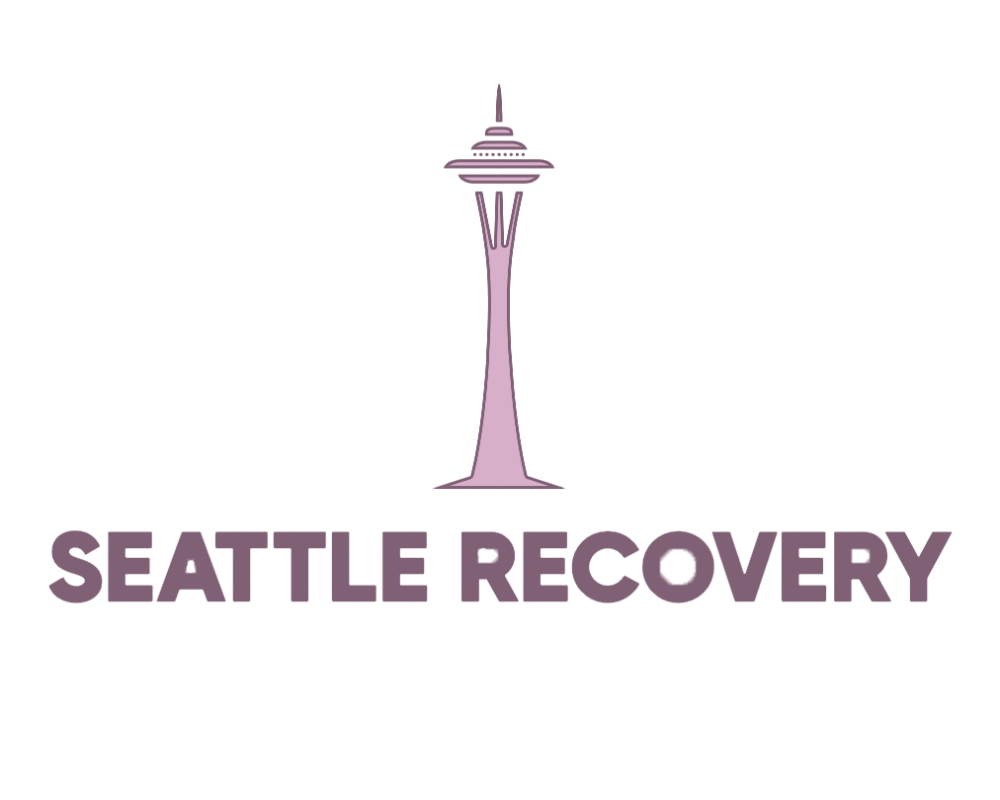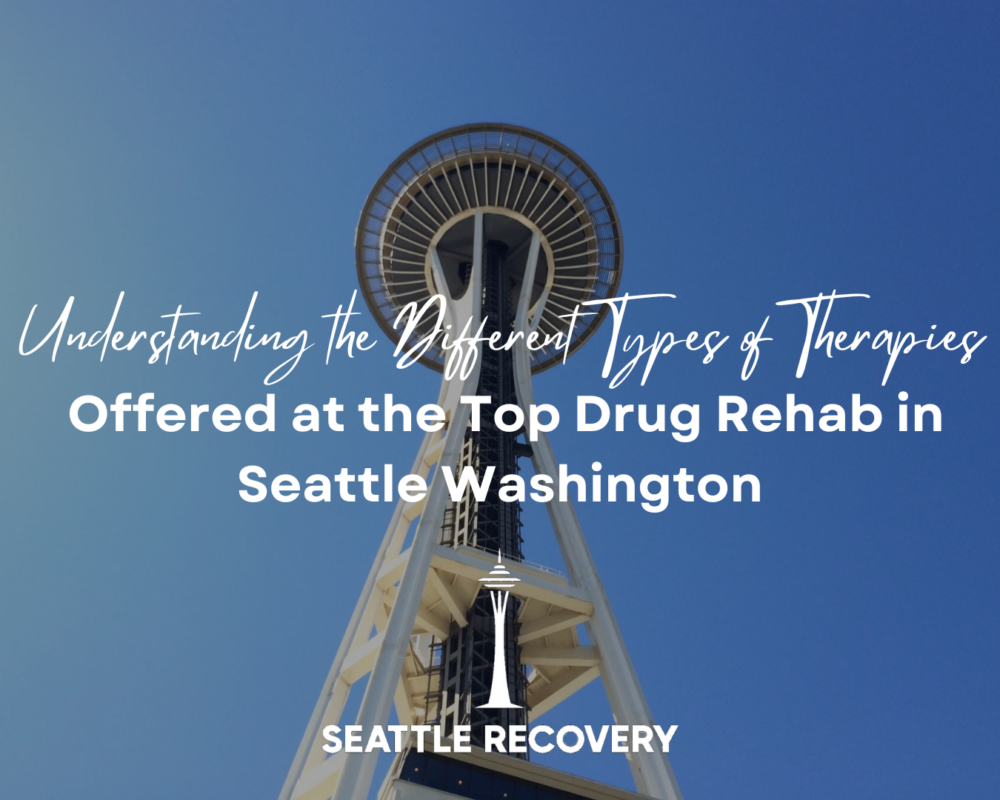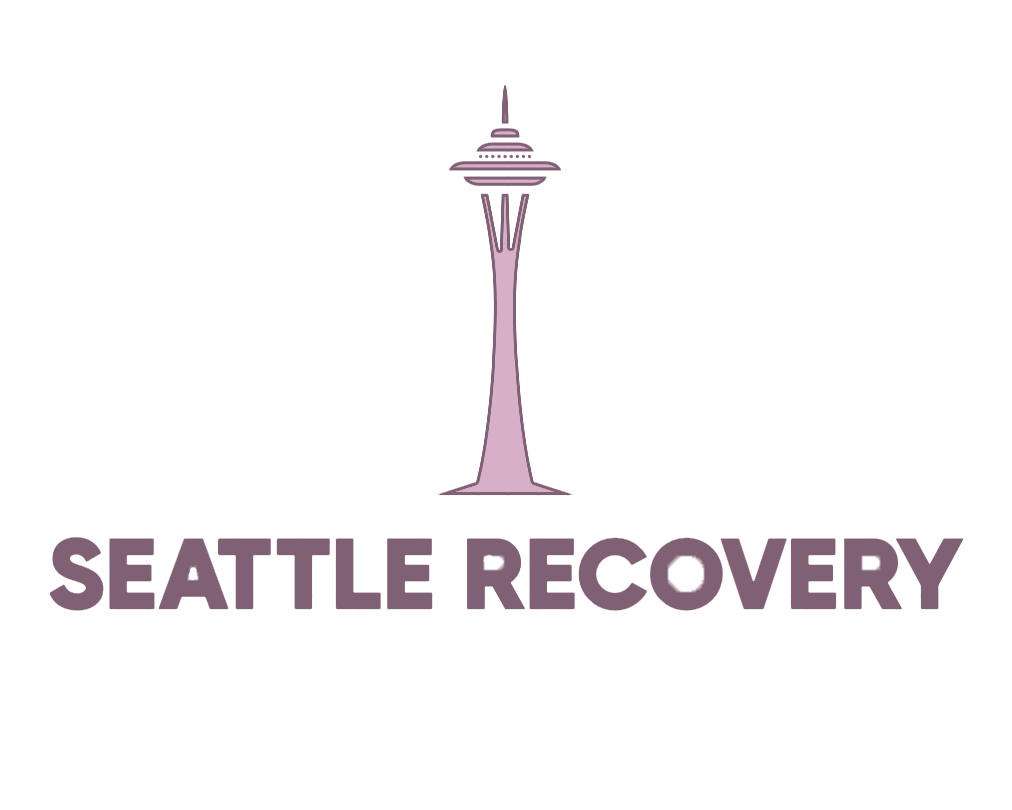When you’re searching for the top drug rehab in Seattle Washington, it’s essential to know what sets different treatment centers apart. One of the primary factors that distinguish one rehab from another is the types of therapies they offer. No two individuals experience addiction the same way, and recovery is a highly personal journey. At Seattle Recovery, we offer a variety of therapeutic approaches tailored to each individual’s needs, ensuring the best chance at long-term sobriety.
In this blog, we’ll dive deep into the diverse range of therapies available at Seattle Recovery, the top drug rehab in Seattle Washington. Whether you’re looking for evidence-based practices like Cognitive Behavioral Therapy (CBT) or seeking holistic approaches that treat the mind, body, and spirit, we’ve got you covered. Understanding these therapies will help you or a loved one make the most informed decision on the path to recovery.
1. Cognitive Behavioral Therapy (CBT): Rewiring Thought Patterns for Recovery
Cognitive Behavioral Therapy (CBT) is at the forefront of addiction treatment and is a cornerstone at Seattle Recovery. It’s one of the most widely researched and validated forms of therapy, especially effective for substance abuse. The goal of CBT is to help individuals identify and change the negative thought patterns that often lead to destructive behaviors like drug use.
By addressing distorted thinking and unhealthy coping mechanisms, CBT empowers individuals to respond to life’s stressors more constructively. For instance, someone recovering from addiction may experience anxiety or feelings of inadequacy, which historically led to substance use. CBT helps them recognize these triggers and replace harmful behaviors with positive alternatives such as mindfulness, exercise, or journaling.
At Seattle Recovery, CBT isn’t a one-size-fits-all therapy. We tailor this approach to meet the specific emotional and psychological needs of each patient, helping them not only recover from addiction but also thrive in everyday life.
2. Dialectical Behavior Therapy (DBT): Mastering Emotional Balance
Another evidence-based treatment we provide at Seattle Recovery is Dialectical Behavior Therapy (DBT), which is especially beneficial for individuals who struggle with intense emotions or co-occurring disorders like borderline personality disorder (BPD). DBT is an offshoot of CBT, but it focuses more on emotional regulation and interpersonal skills.
At Seattle Recovery, DBT helps our clients navigate the emotional ups and downs that often accompany recovery. Addiction and emotional instability are often intertwined, and DBT offers tools to manage both. By focusing on skills like mindfulness, emotional regulation, and distress tolerance, DBT teaches individuals how to handle difficult situations without turning to drugs or alcohol.
A key component of DBT at Seattle Recovery is its group skills training, which allows individuals to practice emotional regulation in real-world scenarios. The combination of individual and group DBT sessions equips our patients with the skills they need to maintain sobriety even in the face of life’s challenges.
3. Individual Therapy: Personalizing the Recovery Journey
At the heart of every treatment plan at Seattle Recovery is individual therapy, which offers patients a private and supportive environment to explore their addiction. Every person’s struggle with substance abuse is unique, and individual therapy allows us to dive deep into each patient’s specific issues—whether that’s trauma, relationship conflicts, or mental health concerns.
What sets Seattle Recovery apart as the top drug rehab in Seattle Washington is our emphasis on individualized care. In one-on-one sessions with our licensed therapists, patients are encouraged to examine the root causes of their addiction, often delving into difficult or painful experiences that have contributed to their substance use. The insights gained from these sessions are invaluable, offering clarity on why addiction developed and how to move forward.
During individual therapy, we help patients develop coping strategies tailored to their needs. By focusing on personal goals, our therapists create a roadmap for recovery that is unique to each individual. At Seattle Recovery, we know that personalized care is key to overcoming addiction.
4. Group Therapy: Building a Supportive Community
Addiction can be isolating. Group therapy at Seattle Recovery offers a powerful way for individuals to break out of that isolation and connect with others who understand their struggles. Group therapy provides a supportive community where patients can share their experiences, learn from others, and build relationships that can last long after treatment ends.
In a group setting, individuals benefit from mutual support and accountability. At Seattle Recovery, our group therapy sessions cover a variety of topics, such as managing cravings, building healthy relationships, and coping with triggers. The shared experience helps patients realize they are not alone on their journey, which can be incredibly empowering.
The dynamic of group therapy also allows individuals to practice new interpersonal skills in a safe environment. They can receive constructive feedback from both their peers and therapists, which helps in developing stronger, healthier relationships. These newfound connections are vital in the recovery process and can provide long-term support after leaving the program.
5. Family Therapy: Healing Together
Substance abuse doesn’t just affect the individual; it affects their entire family. At Seattle Recovery, we understand that addiction often leads to strained relationships with loved ones. That’s why we offer family therapy as part of our comprehensive treatment approach.
Family therapy provides a safe, structured space for individuals and their loved ones to address the emotional and relational damage caused by addiction. At Seattle Recovery, our therapists help families work through communication breakdowns, rebuild trust, and develop healthy boundaries. The goal is to not only repair relationships but also to empower family members with the tools they need to support their loved one’s recovery.
By involving the family in the healing process, we can address issues like enabling behaviors, co-dependency, and unresolved resentments. Family therapy helps strengthen the foundation for long-term recovery by ensuring that both the individual and their family are on the same page in the recovery process.
6. Holistic Therapies: A Mind-Body-Spirit Approach
Recovery is not just about addressing the physical aspect of addiction—it’s about healing the whole person. That’s why Seattle Recovery integrates holistic therapies into our treatment plans. Holistic therapies complement traditional treatments like CBT and individual therapy by focusing on overall wellness.
Some of the holistic therapies offered at Seattle Recovery include:
- Yoga: Yoga helps individuals connect with their bodies in a new, healthier way. It also promotes mindfulness, which can be a powerful tool in managing cravings and stress.
- Meditation: Learning to quiet the mind and focus on the present moment is invaluable for those in recovery. Meditation can reduce anxiety, improve emotional regulation, and boost mental clarity.
- Art Therapy: For some, expressing emotions through art can be more effective than words. Art therapy provides a creative outlet for individuals to process their feelings and experiences.
- Acupuncture: This ancient practice can help alleviate stress and manage withdrawal symptoms by promoting relaxation and restoring energy flow in the body.
At Seattle Recovery, we recognize that different people respond to different types of therapies, so we provide a range of holistic options to support the recovery journey from multiple angles.
Holistic therapies are often highly effective in combination with more traditional methods. By taking care of the mind, body, and spirit, holistic practices promote a deep sense of well-being that helps keep individuals grounded in their recovery. These approaches are why many people consider us the top drug rehab in Seattle Washington.

7. Trauma-Informed Care: Addressing the Roots of Addiction
For many individuals, unresolved trauma is at the heart of their addiction. Whether it’s childhood abuse, neglect, or other significant emotional wounds, trauma can deeply affect how a person copes with life’s challenges. At Seattle Recovery, we offer trauma-informed care to ensure that these underlying issues are addressed, not overlooked.
Our therapists are trained to approach treatment with sensitivity to the complex nature of trauma. This means creating a safe, non-judgmental environment where patients can begin to process their trauma at their own pace. Trauma-informed care at Seattle Recovery is about more than just avoiding re-traumatization; it’s about empowering individuals to regain control of their lives.
By addressing the trauma that often fuels addiction, we help individuals break free from the cycles of pain and substance abuse. This holistic, compassionate approach is one of the reasons why Seattle Recovery is considered the top drug rehab in Seattle Washington.
8. Medication-Assisted Treatment (MAT): Easing the Path to Sobriety
Medication-Assisted Treatment (MAT) is a valuable tool for many individuals in early recovery. MAT combines behavioral therapy with medications that help manage cravings and withdrawal symptoms. At Seattle Recovery, we offer MAT as part of a comprehensive treatment plan for individuals struggling with opioid or alcohol addiction.
Medications used in MAT, such as methadone, buprenorphine, and naltrexone, are approved by the FDA and have been shown to increase the chances of long-term sobriety. These medications help alleviate the physical challenges of withdrawal, allowing patients to focus on their recovery without being overwhelmed by cravings.
MAT is not a one-size-fits-all solution, and it’s always used in conjunction with counseling and therapy. At Seattle Recovery, we ensure that MAT is integrated into a holistic treatment plan that addresses both the physical and psychological aspects of addiction.
While some people may have concerns about the use of medication in recovery, the success of MAT is well-documented. In fact, many individuals credit MAT with giving them the stability they needed to fully engage in their therapeutic journey. At Seattle Recovery, we use MAT responsibly, ensuring that it’s part of a balanced, personalized plan for each patient.
9. Dual Diagnosis Treatment: Treating Addiction and Mental Health Together
Many individuals who struggle with addiction also have co-occurring mental health disorders such as depression, anxiety, or PTSD. Treating only the addiction without addressing the mental health issues often leads to relapse. That’s why Seattle Recovery offers specialized dual diagnosis treatment, making us one of the leading rehab centers in Seattle for individuals with complex needs.
Dual diagnosis treatment involves a comprehensive approach to both addiction and mental health. At Seattle Recovery, our team of experts works collaboratively to treat both conditions simultaneously, ensuring that one doesn’t undermine the treatment of the other.
This integrated approach is essential for lasting recovery because it helps individuals gain control over their addiction while also addressing the mental health challenges that may have contributed to it in the first place. At Seattle Recovery, we believe that both addiction and mental health must be treated in tandem for sustainable healing.
10. Aftercare and Continued Support: The Key to Long-Term Recovery
Recovery is a lifelong process, and the work doesn’t end when a patient leaves our facility. That’s why Seattle Recovery places a strong emphasis on aftercare planning. We help each individual develop a personalized aftercare plan that includes ongoing therapy, support groups, and other resources to maintain their sobriety.
Our aftercare services are designed to ensure that patients have the support they need to continue their recovery journey outside of the treatment center. Whether it’s connecting patients with local 12-step programs, sober living homes, or outpatient counseling, Seattle Recovery provides the tools and resources necessary for sustained success.
We also offer alumni support, giving individuals the opportunity to stay connected with our community and continue their journey of personal growth. This ongoing support is crucial in helping individuals maintain their sobriety long after their initial treatment.
Aftercare is a key aspect of our treatment model because we know that recovery doesn’t happen overnight. We aim to provide a strong foundation that patients can build on for years to come. This commitment to long-term success is what makes Seattle Recovery the top drug rehab in Seattle Washington.
Final Thoughts
Choosing the top drug rehab in Seattle Washington means selecting a center that offers a variety of therapies tailored to the unique needs of each patient. At Seattle Recovery, we pride ourselves on providing a comprehensive, compassionate approach to addiction treatment. From evidence-based practices like CBT and DBT to holistic therapies and trauma-informed care, we address every aspect of addiction to foster long-term recovery.
If you or a loved one are ready to start the journey to sobriety, reach out to Seattle Recovery. We’re here to support you every step of the way with our wide range of therapeutic options and individualized treatment plans. Recovery is possible, and it starts with the right care. Visit our website https://seattlerecovery.org/ or call us at (206) 231-0252.







